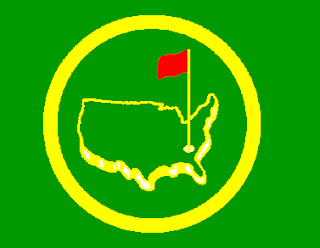 On-court action the past three weeks limited discussion about expansion of the NCAA Tournament, but the voice of the Final Four -- CBS Sports play-by-play man Jim Nantz -- said Monday that he believes this year's tournament, with many higher seeds winning games, provides ample reason for change.
On-court action the past three weeks limited discussion about expansion of the NCAA Tournament, but the voice of the Final Four -- CBS Sports play-by-play man Jim Nantz -- said Monday that he believes this year's tournament, with many higher seeds winning games, provides ample reason for change."I think people will look at 2010 as the year the tournament changed," Nantz said during a teleconference with CBS on-air talent and production personnel. Although analyst Clark Kellogg said the NCAA has evaluated expansion scenarios with 68, 80 or 96 teams, Nantz said there were only two options. "Eighty's not a consideration. It'll either stay where it is or go to 96."
And Nantz said this year's event provided many reasons why expansion would be good for the event.
Studio analyst Greg Anthony agreed: "There's just not much difference between the best and the rest anymore."
Their perspective was one that's been surprisingly long in coming during this tournament. As mid-majors advanced and upsets broke brackets across the country, it seemed more and more like someone would eventually make the case that a bigger tournament was the answer -- and that this year's event was a prime example. Someone, specifically Nantz, finally made that case Monday, and his colleagues joined the chorus.
Of course, you have to wonder about the timing -- because supporting and expanded tournament certainly could be good business for CBS. Just because the NCAA has hinted about rebidding the event does not mean that the current rights holder is precluded from bidding itself. Also, with dates for future Final Fours already set through 2016 (it goes to Houston in 2011), it would be hard, but not impossible, for the NCAA to make a significant expansion overnight. By showing its support for a bigger event, CBS could certainly indicate that it has plans to pay for a bigger tournament if the two parties stay the course through what remains of their current agreement.
As CBS prepares for this weekend's Final Four, network officials said they were excited about the quartet of teams that will converge on Indianapolis this week. The group includes perennial powers in Duke and Michigan State as well as West Virginia and Butler.
Some believe (and, of course, they must) that the tournament has already changed -- especially without big-name, tradition-rich programs such as Kansas, Kentucky, North Carolina or UCLA involved in the Final Four.
"The storylines that have developed this year have made this a little bit different tournament," said CBS Sports and News president Sean McManus. "We've got two schools with good heritage and tradition and we've got two other good stories. It's dependent, as most Final Fours are, on the closeness of the games. I think we're going to be fine."
While Duke brings some star power to the event, McManus compared the Final Four to February's Super Bowl, which was without a major-market team but still set ratings and viewership records.
"The story of New Orleans and that that city had been through actually turned out to be one of the most compelling storylines in recent years," he said.



















